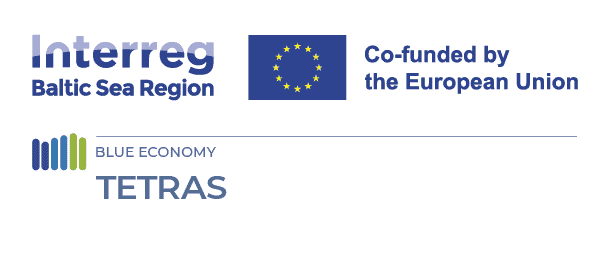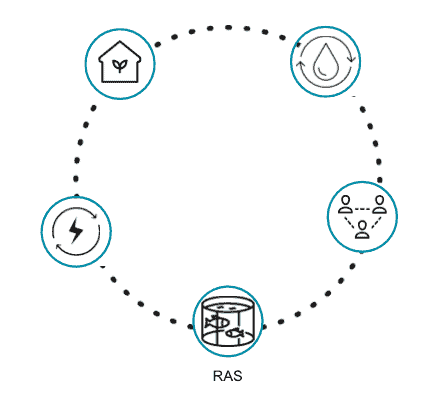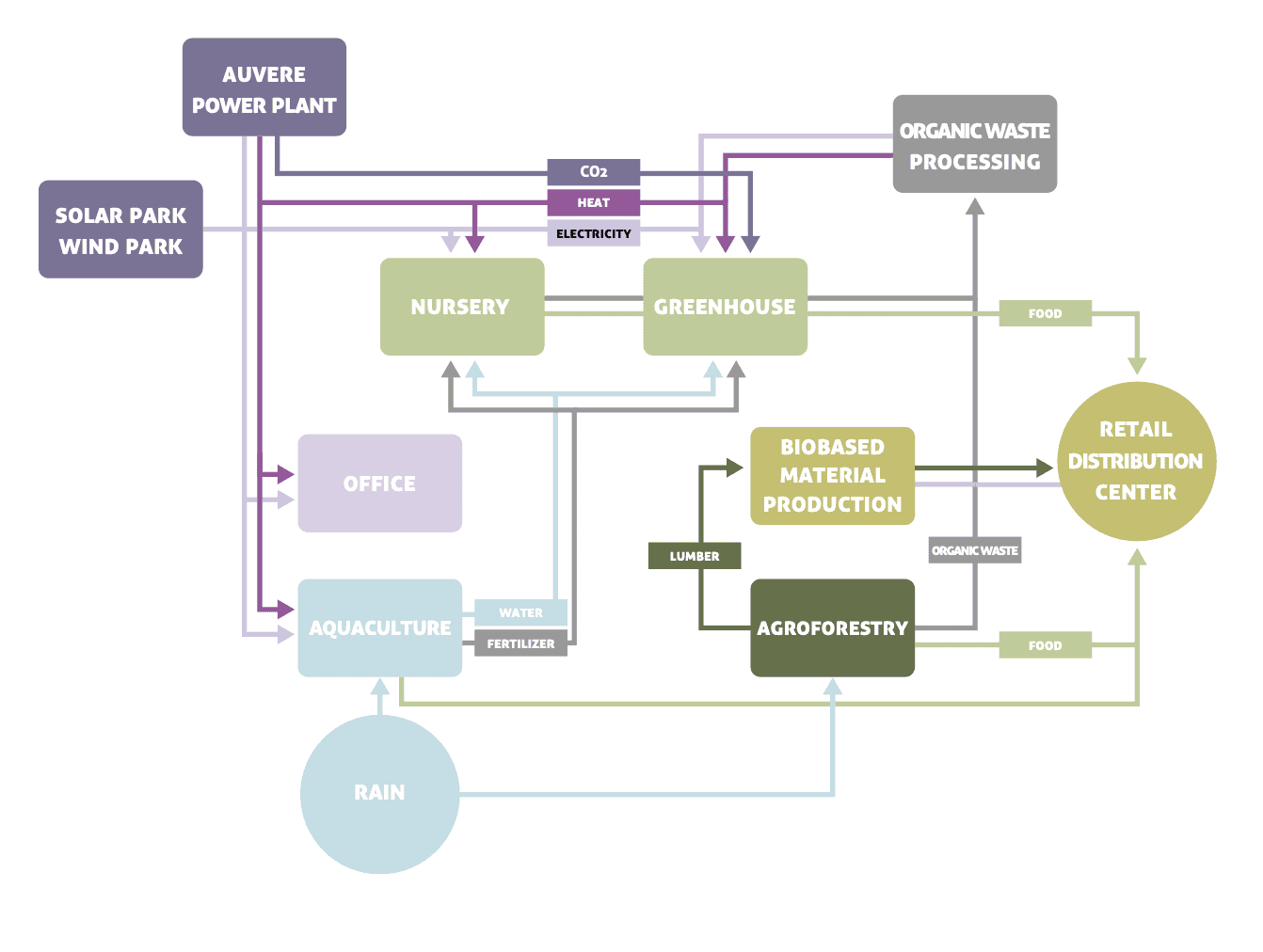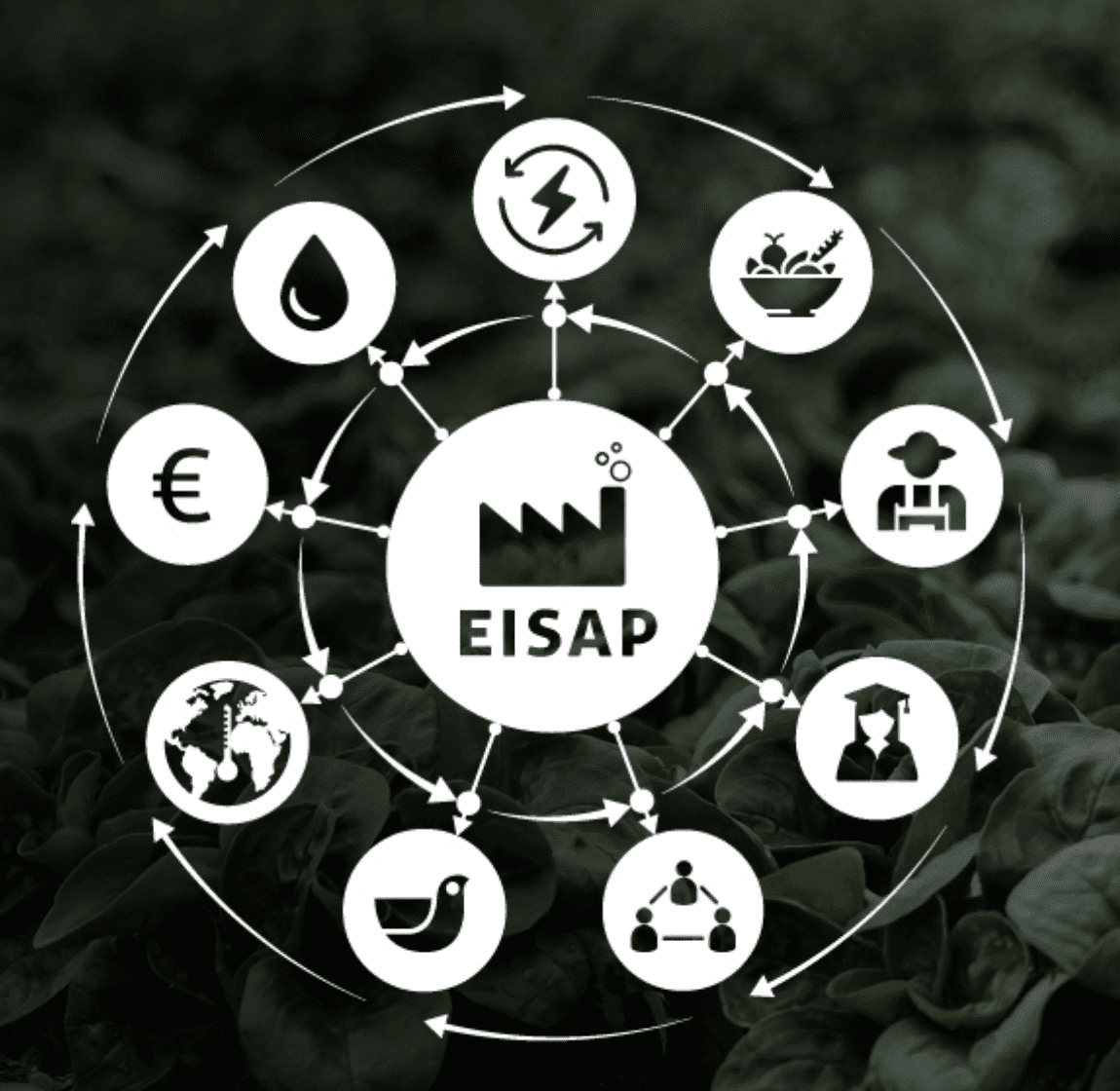
Pilot 3 - Best use of land and resources for a fully circular agro-industrial park with RAS
27 April 2023
Pilot Owner: Ida-Viru Investment Agency (IVIA)
Location: Auvere, Estonia
Partners involved: European Project Center of the University of Applied Sciences Wismar: Technology, Business, and Design (DE)
Type of symbiosis: water, energy, nutrients
Keywords: industrial symbiosis, RAS, nutrients, energy, water, circular economy
Context
The Estonian Industrial Symbiosis Agropark (EISAP) is an early-stage development led by Ida-Virumaa Industrial Areas (IVIA), a public organization active in the east of Estonia which focuses on attracting investment into the area.
The core concept of the EISAP is industrial symbiosis. This means, that the agro park is designed to operate as a closed-loop system, where the resource use and waste/residual outputs of the various industries in the site are interlinked. One process’s waste or residual is another process’s resource. This approach promotes efficiency and circularity and helps minimize the ecological impact.
With the EISAP, IVIA intends to repurpose a former oil shale mine, an area with limited ecological value and low biodiversity. The land is located next to the Narva River and a power plant, which offers potential sources of water, excess heat, low-cost electricity, and CO2. By utilizing the residuals from the power plant (i.e. steam, CO2) in other processes, the power plant’s environmental impact would be improved.
The EISAP presents opportunities for the implementation of industrial symbiosis, smart energy grids, and circular economy principles. It also opens the possibility of new food industries such as alternative protein sources, and the utilization of innovative growing technologies beyond the scope of the standard greenhouse practices.
Aim & Outcome
As part of TETRAS, Pilot 3 will develop a feasibility study to analyse the use of available resources (water, energy) at the EISAP and strategies for optimal water use and management for designing a commercial RAS farm with greenhouses, other industries, and offices. The latter considers the site characteristics, available neighbouring services, infrastructure, and logistics. The focus of the pilot will be to clarify the risks and certainties of developing a fully circular agro-industrial park with a RAS as part of it.
The pilot will result in a business case ready to be presented to investors. The business case is intended to be transferrable to other Baltic Sea regions. Additionally, it will provide a guideline for the licensing process in Estonia and EU rules, where the existing process will be evaluated, and recommendations will be made to fill any gaps.
Pilot 3 cross-links with the other pilots of TETRAS. Pilot 1 efforts of developing the industrial symbiosis concept that water from RAS can be used as technical water for other industrial processes will be of use in Pilot 3. In addition, Pilot 3 will benefit from Pilot 2 insights on developing a RAS shrimp farm.
Pilot 3 is led by IVIA (Estonia) with the support of the Technology, Business, and Design Department of the Wismar University of Applied Science, (Germany). Wismar University provides expertise in business development, circular economy, responsible resources, and innovation.
Relevance
Pilot 3 provides the vision of the end-users of TETRAS outputs, which is immensely valuable. It contributes to ensuring that the project meets the needs of those who will utilize the outputs, making it more practical, efficient, and effective.
Pilot 3 business case will serve to promote and de-risk investment in RAS facilities among developers and investors, as well as increase support from local and national authorities to promote the development of industrial symbiosis centers as a tool for responsible and sustainable economic development.
Vision & Impact
Christopher Meyer, from the European Project Center of the University of Applied Sciences Wismar: Technology, Business and Design, shared “RAS is a perfect showcase to illustrate how industrial symbiosis can transform our existing value chains towards more efficiency and sustainability. By utilizing spillovers and positive external effects cross-industrial benefits can be exploited to make substantial steps towards more circular industries in the BSR and beyond.”
Contact
Nele Rogenbaum
nele@ivia.ee








